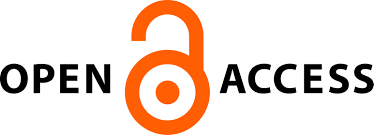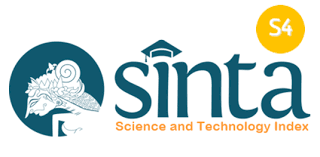TIMBULAN, KOMPOSISI, DAN POTENSI DAUR ULANG SAMPAH DARI BERBAGAI SUMBER DI KOTA PADANG
Main Article Content
Abstract
Data of generation, composition, and recycling potential of solid waste are needed for designing, evaluating, and developing municipal solid waste (MSW) management system in a particular region. From this research, it was found that the average residential solid waste generation rates in Padang was 2.66 L or 0.38 kg/person×day, and that of commercial sources was 3.82 L or 0.52 kg/person×day. The solid waste generation rate of institutional sources was 1.37 L or 0.11 kg/person×day, and that of industrial sources was 6.57 L or 5.06 kg/person×day. The municipal services contributed solid waste of 1.80 L or 0.19 kg/person×day. Solid waste composition from several sources in Padang consisted of biodegradable organic waste of 25-83%, and plastic, paper, metal and other solid waste materials of 17-75%. The main source of biodegradable organic waste was municipal services (82.85%), whereas other waste materials were generated from industrial waste (75.37%). Waste components that have a potential to be recycled are food wastes, yard wastes, wood, paper, plastics, glass, tin cans, copper, zinc, and metal. The MSW recycling potential was 59-89%, and those of biodegradable organic waste and other waste materials were of 22-78% and 11-55% respectively. The highest recycling potential of biodegradable organic waste was from municipal services and institutional sources, whereas that of the other waste materials was from commercial, domestic, and industrial sources.
Downloads
Article Details
Submission of a manuscript to Jurnal Purifikasi means that the work has never been published in another journal and is not under consideration for publication elsewhere. The author hereby agrees to submit the copyright of the manuscript and its contents to Jurnal Purifikasi, if accepted for publication. Accepted manuscripts will be published in printed form where the ISSN is bound in printed form, not in online form (pdf). Authors are not allowed to publish their work in other forms (journals) without permission from the Jurnal Purifikasi manager.
By submitting a manuscript, the author is deemed to know all the rights and obligations attached to each manuscript.








